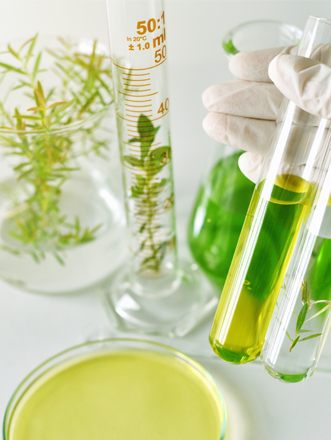

World Health Organization (WHO) reports that 80% of the World Population relies on Traditional or Herbal Systems of Medicine for Primary Health Care needs. Ayurveda, the Traditional System of Indian Medicine is regarded as the Oldest System of Medicine in the World and is practiced majorly in the Indian Subcontinent. The major merits of Traditional Medicine seem to be their perceived Efficacy, Low Incidence of Serious Side Effects, and Low Cost.
In view of Ayurveda’s Extensive & Continued usage, the Analytical Procedures and Standards need to be compliant with the concerned Regulations. Ayurvedic Drug Testing involves the Testing of Ayurvedic Raw Materials (Plant, Animal & Mineral Materials, Water), and the Analysis of different Ayurvedic Formulations or Finished Products (Pharmacopoeia / Proprietary). It is often difficult for a Pharmaceutical Manufacturer to have Composite Capability and In-house Testing Facilities for all the Ingredients and Products. EFRAC’s Pharmaceutical Testing Division offers Comprehensive Solutions for the Testing of Ayurvedic Raw Materials including Drug Substances, Intermediates, Excipients etc.
EFRAC is approved by the National Accreditation Board for Testing and Calibration Laboratories (NABL), State Drugs Control of Indian Systems of Medicine and Homoeopathy (ISM & H) and Department of Ayurveda, Yoga & Naturopathy, Unani, Siddha and Homoeopathy (AYUSH) for Analysis of Ayurvedic, Siddha, Unani and Homoeopathic Medicinal Products. Its Comprehensive Setup Assures Quality & Reliability of the Tested Drugs.

Ayush Drugs
• Identification (Macroscopic / Organoleptic / Sensory, Microscopic, Chemical) • Acetyl Value • Acid Insoluble Ash • Acid Value • Adulteration with Modern Drugs/Drug Residues • Aflatoxins (Qualitative and Quantitative) • Alcohol Content & Alcohol Soluble Extract • Analysis of Mineral Raw Materials/Metals • Assay of Marker Compounds • Boiling Point/Range • Chromatographic Fingerprinting Studies by TLC, HPLC, GC, GC-MS, LC-MS/MS • Congealing Range/Point • Ester Value • Ether Soluble Extra Additives • Fixed Oil Estimation • Fluorescence Analysis • Foreign Matter • Heavy Metals (Qualitative and Quantitative) • Hydroxyl Value • Iodine Value • Limit Tests • Loss on Drying/Moisture Content • Loss on Ignition • Melting Point/Range • Microbial Limit Tests and Tests for Specific Organisms • Pesticide Residues • Powdered Herb Analysis • Protein Estimation • Essential Oil Estimation • Refractive Index & Relative Density • Fatty Acid Profiling and Composition • Amino Acid Profiling • Sugar Estimation • Tap & Bulk density • Test for Mineral Oil • Total Ash , ASA and Sulphated Ash • Total Phenolic Compounds • Total Solids • Total Tannins • Unsaponifiable Matter • Viscosity • Volatile / Essential Oil Content • Water Content • Water Soluble Ash • Water Soluble Extractive
LC-MS MS (QQQ) • GC- (FID) • GC- (HEAD SPACE, ECD, MS)• GC-MS MS (QQQ) • HPLC (FLD, PDA, ELSD, RID) • AAS – (Flame, GTA, VGA) • ICP-OES • ICP-MS • TOC Analyzer • UV -Visible Spectrophotometer • Brookfield Viscometer • Coulometer • CHNS & O Analyzer • FT-IR • Ion Chromatograph • Karl-Fisher Autotitrator • TGA• DSC • Digital Polarimeter • Friability Tester • Hardness Tester• Disintegration Test apparatus • Dissolution Test apparatus• Penetrometer • BP/MP Apparatus • Potentiometer
• Indian Pharmacopoeia • Indian Standards (IS) • Ayurvedic Pharmacopoeia of India • Siddha Pharmacopoeia of India • Unani Pharmacopoeia of India • British Pharmacopoeia • Food Chemical Codex (FCC) • United States Pharmacopoeia • WHO Guidelines